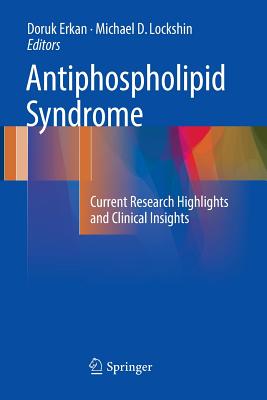Talaro's Foundations in Microbiology: Basic Principles, 11/e (IE-Paerback)
暫譯: 塔拉羅的微生物學基礎:基本原則,第11版(IE-平裝本)
Barry Chess (Kathleen Park Talaro)
- 出版商: McGraw-Hill Education
- 出版日期: 2020-01-01
- 售價: $1,450
- 貴賓價: 9.8 折 $1,421
- 語言: 英文
- 頁數: 650
- ISBN: 1260575381
- ISBN-13: 9781260575385
-
其他版本:
Talaro's Foundations in Microbiology, 12/e (Paperback)
相關主題
商品描述
Description
In a near-perfect example of a biological process looking exactly as one would imagine, thousands of newly replicated Ebola virus filaments are released from an infected cell. Each viral particle will go on to infect a new cell, quickly overwhelming the body's defenses. Those unlucky enough to contract Ebola virus disease will suffer fever, fatigue, body pain, liver and kidney damage, and internal bleeding. Up to 90% of patients will die.
More than two dozen outbreaks of Ebola virus disease have been confirmed since the virus was first discovered in 1976, with most restricted to small, isolated villages in Africa. Unfortunately, more recent outbreaks have been far larger, resulting in thousands of deaths. These larger outbreaks, fueled by a more mobile population, likely represent the new normal, according to the World Health Organization. Despite the efforts of scientists around the globe, Ebola virus disease has no effective treatment and no cure, but experimental procedures being used in the current epidemic offer some hope for one day vanquishing the virus.
Ebola is just one example of what you will find in Foundations in Microbiology, a user's guide to the invisible, occasionally dangerous, but always fascinating world around us.
商品描述(中文翻譯)
描述
在一個近乎完美的生物過程範例中,數千個新複製的埃博拉病毒絲狀體從一個感染的細胞中釋放出來。每個病毒顆粒將會感染一個新的細胞,迅速壓倒身體的防禦系統。不幸感染埃博拉病毒病的人將會遭受發燒、疲勞、身體疼痛、肝臟和腎臟損傷以及內部出血。多達90%的患者將會死亡。
自1976年首次發現該病毒以來,已確認超過二十次的埃博拉病毒病疫情,大多數疫情限制在非洲的小型孤立村莊。不幸的是,最近的疫情規模要大得多,導致數千人死亡。根據世界衛生組織的說法,這些更大規模的疫情,受到更流動人口的推動,可能代表了新的常態。儘管全球科學家的努力,埃博拉病毒病目前沒有有效的治療方法和治癒手段,但在當前疫情中使用的實驗性程序為未來戰勝該病毒提供了一些希望。
埃博拉只是《微生物學基礎》一書中所探討的眾多範例之一,這本書是一本關於我們周圍這個看不見的、偶爾危險但總是引人入勝的世界的使用者指南。
目錄大綱
Table of Contents
1. The Main Themes of Microbiology
2. The Chemistry of Biology
3. Tools of the Laboratory: Methods of Studying Microorganisms
4. A Survey of Prokaryotic Cells and Microorganisms
5. A Survey of Eukaryotic Cells and Microorganisms
6. An Introduction to Viruses, Viroids, and Prions
7. Microbial Nutrition, Ecology, and Growth
8. An Introduction to Microbial Metabolism: The Chemical Crossroads of Life
9. An Introduction to Microbial Genetics
10. Genetic Engineering: A Revolution in Molecular Biology
11. Physical and Chemical Agents for Microbial Control
12. Drugs, Microbes, Host--The Elements of Chemotherapy
13. Microbe-Human Interactions: Infection, Disease, and Epidemiology
14. An Introduction to Host Defenses and Innate Immunities
15. Adaptive, Specific Immunity and Immunization
16. Disorders in Immunity
17. Procedures for Identifying Pathogens and Diagnosing Infections
目錄大綱(中文翻譯)
Table of Contents
1. The Main Themes of Microbiology
2. The Chemistry of Biology
3. Tools of the Laboratory: Methods of Studying Microorganisms
4. A Survey of Prokaryotic Cells and Microorganisms
5. A Survey of Eukaryotic Cells and Microorganisms
6. An Introduction to Viruses, Viroids, and Prions
7. Microbial Nutrition, Ecology, and Growth
8. An Introduction to Microbial Metabolism: The Chemical Crossroads of Life
9. An Introduction to Microbial Genetics
10. Genetic Engineering: A Revolution in Molecular Biology
11. Physical and Chemical Agents for Microbial Control
12. Drugs, Microbes, Host--The Elements of Chemotherapy
13. Microbe-Human Interactions: Infection, Disease, and Epidemiology
14. An Introduction to Host Defenses and Innate Immunities
15. Adaptive, Specific Immunity and Immunization
16. Disorders in Immunity
17. Procedures for Identifying Pathogens and Diagnosing Infections































